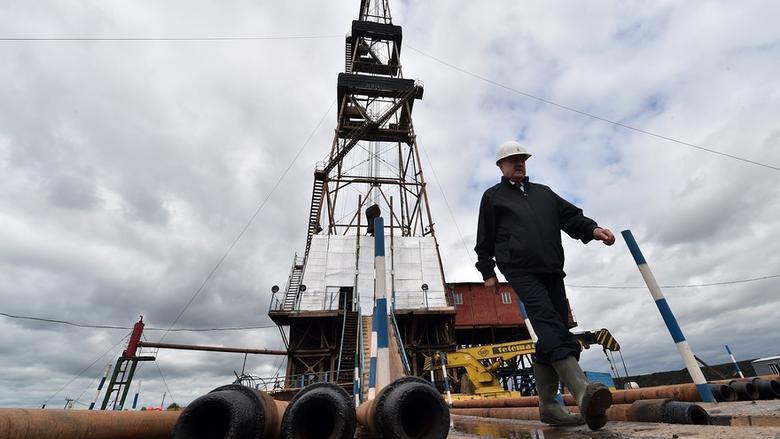
SAUDI - RUSSIAN ALLIANCE

FT - The first global crude supply pact in 15 years has underlined the growing energy alliance between Saudi Arabia and Russia, as the depth of the two-year oil slump forces co-operation between once unlikely partners.
Russia led the main oil producers from outside the Opec cartel, including Mexico and Kazakhstan, in a deal signed this weekend to reduce supply by 568,000 barrels a day — with Moscow, the largest non-Opec exporter, agreeing to shoulder just over half the cut.
Brent crude was up as much as 6.5 per cent within minutes of markets opening in Asia on Monday, to a year-high above $57.89 a barrel, following the non-Opec deal.
The agreement follows almost a year of petro-diplomacy that led Russian president Vladimir Putin and Saudi Arabian leaders to put aside differences over the war in Syria as their economies struggle to adapt to the halving in oil prices since mid-2014.
The direct co-operation between the world's top two crude exporters comes after Saudi Arabia on November 30 led the 13-member Opec cartel in a deal to cut supply by more than 1m b/d, pushing prices up 15 per cent to above $54 a barrel.
"It is very significant to have an agreement by the two powerhouses that are Russia and Saudi Arabia," said Olivier Jakob, analyst at the Petromatrix consultancy. "A new geopolitical dynamic is being created which could be transformative for oil markets."
Saudi Arabia and Russia together account for more than a fifth of global oil supplies, but mistrust between the two nations has not easily been overcome.
Russia reneged on a previous joint deal to reduce output during the last prolonged oil slump at the turn of the century, and its offer to reduce supply by 300,000 b/d this time is seen as partly including natural declines from older fields.
But the involvement of Mr Putin, who has held talks this year with Saudi's powerful Deputy Crown Prince Mohammed bin Salman, adds weight to Moscow's commitment.
"With Putin directly involved in brokering this deal and Saudi Arabia and Russia co-operating on various fronts, not just the oil market, Putin is likely to put substantial political pressure on the companies to ensure substantial, if not full, compliance," said Amrita Sen, co-founder at Energy Aspects.
Saudi Arabia has traditionally acted as the oil market's so-called swing producer, raising production when supplies were tight and lowering them when necessary to bolster the market and support the price.
But in 2014 the rapid growth of US shale and other high-cost output, after almost four years of $100 oil, led Riyadh to abandon its role due to fear of losing market share.
The subsequent crash in prices has stalled non-Opec supply growth and led to as much as a trillion dollars in investment cuts, but also hammered the budgets of major oil producers.
Riyadh has embarked on an ambitious project to end its economy's over reliance on oil revenues but needs a higher price in the short term to achieve its goals, including listing part of Saudi Aramco, its state oil company, to raise funds.
It feared giving up more market share to Russia, one of the few non-Opec countries to successfully keep raising output during the slump. Russian output this year reached a record above 11m b/d, but a painful oil-price triggered recession — compounded by sanctions over Russia's involvement in Ukraine — led Moscow to talks.
"Negotiations from technical to leadership went on for a year with meetings in Russia and elsewhere," said one Opec delegate. "This wasn't a game and it didn't come easily but it is impossible to see [Mr Putin] changing his mind. Saudi too will fulfil its promise."
Khalid al Falih, Saudi Arabia's energy minister, said over the weekend that he could now potentially cut supply further than what was agreed with Opec at the start of the year, in what has been seen as a warning shot to traders that might want to test their resolve.
Riyadh and Moscow are thought to be targeting pushing prices above $60 a barrel next year, though analysts cautioned that they are unlikely to have the market entirely their own way.
US oil output has fallen by about 10 per cent since early 2015, but US shale drillers have cut costs dramatically and could respond to any price recovery.
Some market watchers also still harbour doubts whether enough of their pledged cuts will be enacted to start drawing down the huge overhang of inventories that built up during the glut.
"Occasionally these loose, ad hoc producer agreements enjoyed temporary success, but all eventually failed due to cheating from without and within," said Bob McNally, a former White House energy adviser who runs Rapidan Group, a US-based consulting group. "Time will tell whether [the weekend's] agreement breaks the historical mould."
-----
Earlier:
SAUDI:
RUSSIA:
IMF: EXTERNAL RISKS FOR RUSSIA





